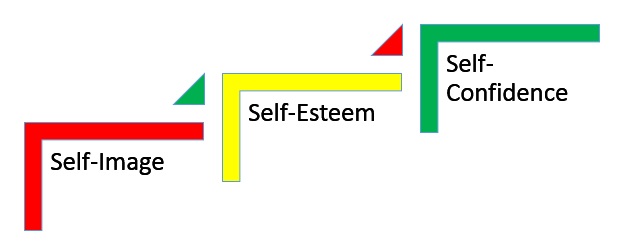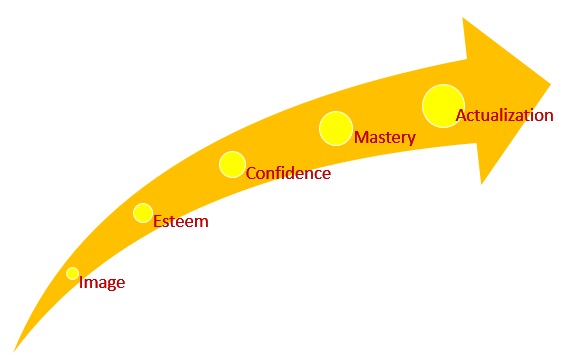Self-Esteem
Self-esteem is a person‘s opinion or judgment of his or her own worth. It is an emotional evaluation of oneself as to how he or she perceives his or her value to the world and how valuable they feel they are to others. It can also be termed self-worth or self-value. It is often categorized as either positive (high) or negative (low). Positive or high self-esteem is a good opinion of yourself, while a negative or low self-esteem is a poor opinion of yourself.
About self-esteem
Self-esteem is based on self-image; how we see ourselves. If we see ourselves in a positive way with good qualities, characteristics, and abilities, we usually have high esteem or self-worth. However, if we see ourselves in a negative way, having few good qualities, traits, or abilities, we most often will have low esteem.
Positive or high esteem gives us the self-confidence to take charge of our life and grow from our experiences and mistakes without the fear of failure or ridicule.
If we have high esteem, we tend to be self-confident, optimistic, aware of our strengths, and accepting of our mistakes. In contrast, negative or low self-worth can cause us to struggle with self-doubt and not grow as individuals to our fullest potential. It can create anxiety, stress, and a sense of loneliness, as well as an increased likelihood of suffering from depression. There are, however, ways to improve esteem so that we can confidently take on the inherent challenges of life.
Role in Self-Development
Positive self-esteem is an essential human need that is vital for personal growth and self-development. The need for positive self-esteem is illustrated as a key component in Abraham Maslow’s Hierarchy of Needs. Maslow lists esteem as one of the basic human motivations along with other needs including physiological, security, social, cognitive, and aesthetic that a person must satisfy before they can reach his or her fullest potential. Maslow believed that people need both esteem from other people as well as inner esteem (self-esteem). He believed that the need for esteem must be fulfilled in order for an individual to grow as a person and achieve self-actualization.
Improving self-esteem
Self-esteem is often viewed as a personality trait, which means it is likely to be fairly set and consistent throughout a person’s life. A person’s thoughts and feelings about themselves may fluctuate based on their daily interactions and experiences, but a person’s self-worth is more deep-rooted than the ebbs and flows associated with daily life. After the temporary thoughts and feelings dissipate, a person’s normal self-esteem level will return. For example, a test grade can have a temporary impact on how you feel about yourself and your abilities, but after a while those thoughts will dissipate and you will be brought back to your normal level of esteem.
Although self-esteem becomes relatively set and consistent throughout our life, it slowly evolves as we develop an image of ourselves through our experiences and interactions with others. Experiences during childhood play a significant role in the shaping our self-worth.
How we were treated by others when we are growing up contributes to the creation of our self-worth. If we were praised when we did well and supported when we experienced failure, we tended to feel good about ourselves and our abilities. In the contrast, if we did not get recognition when we did well or ridiculed when we made a mistake, we often took it personally and questioned our worth.
Continuous thoughts and feeling of inadequacy, can play a significant role in lowering a person’s esteem. These feelings often build up over time, and letting go of ingrained feelings and beliefs is not easy. It takes time and hard work, but with positive self-imaging and support from others, your esteem can be gradually raised even after years of having low self-esteem. There are some mental conditioning techniques that can be used to help improve self-esteem including positive thinking, visualization, and affirmation.





